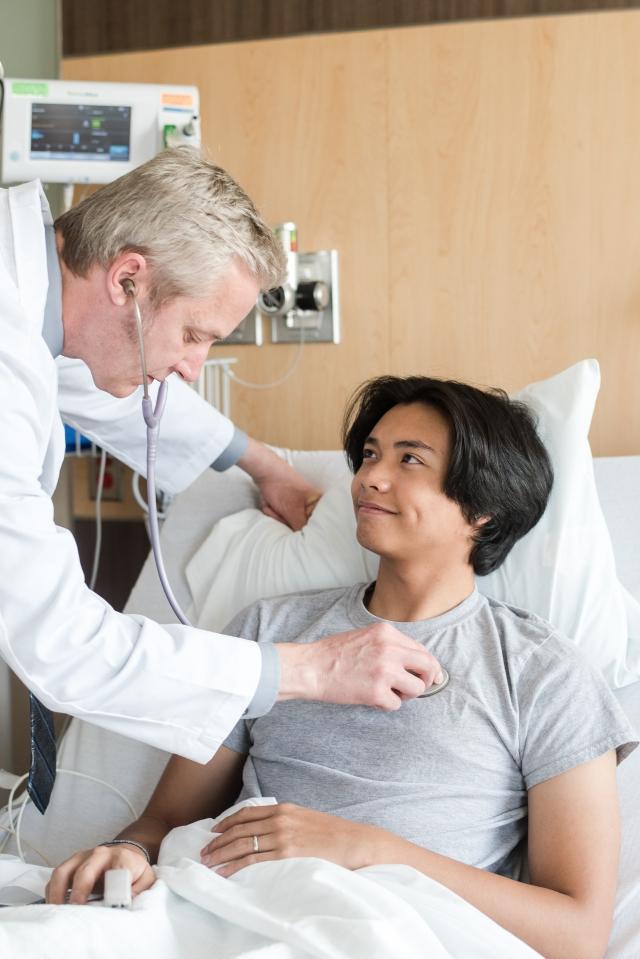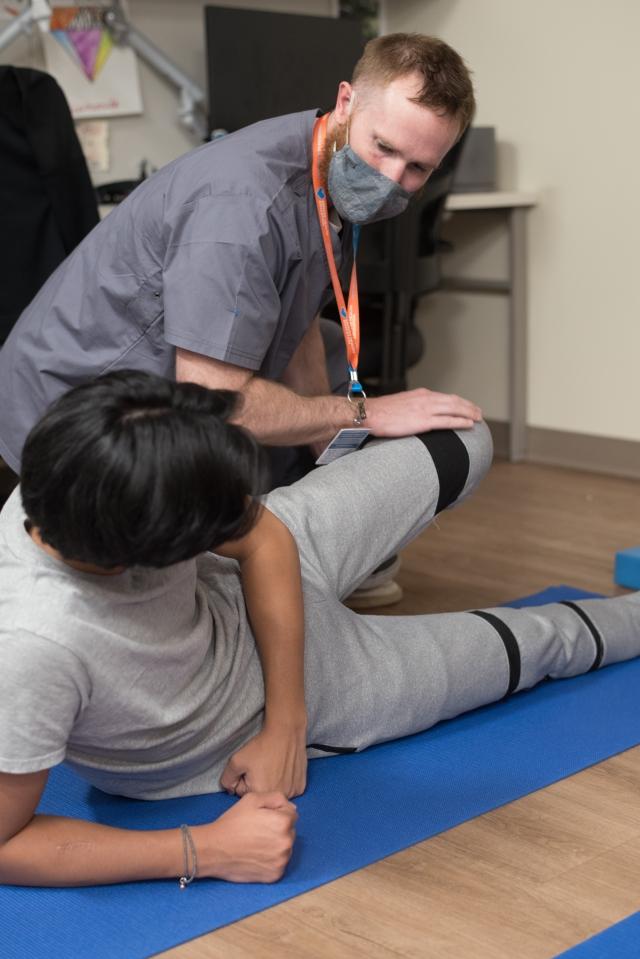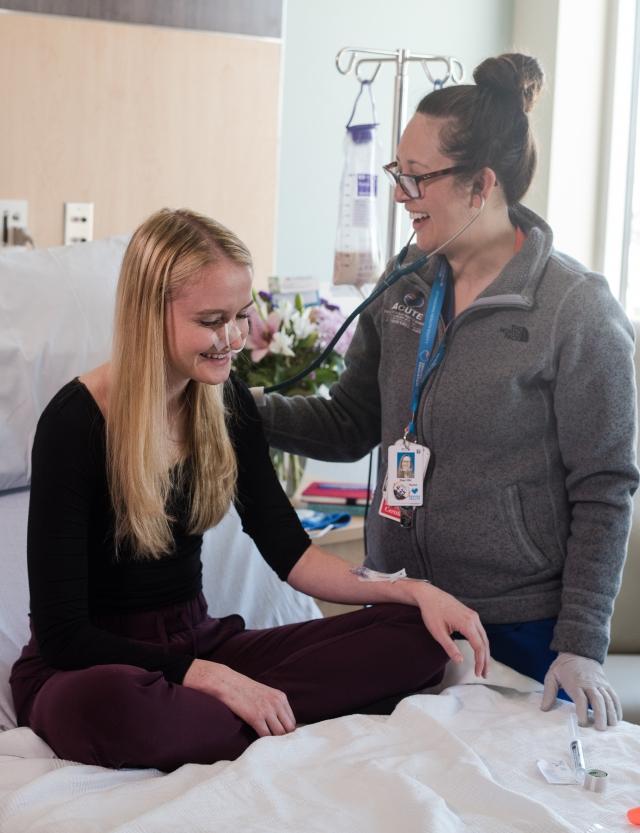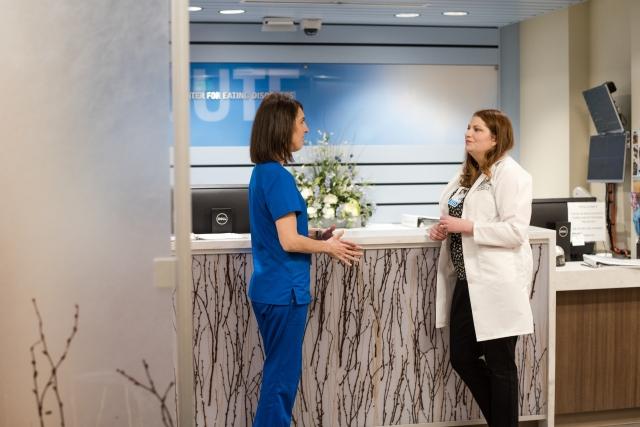
Partnering with ACUTE When a Patient is Too Ill for Residential Care
During an initial assessment of care for admission to IP/RES/PHP/IOP programming, should your admissions team determine that a client is in need of medical stabilization, ACUTE requests that the referring program initiate a 3-way phone call between the referring program, the potential patient and the ACUTE admissions team at 877.228.8348. By facilitating the warm handoff via 3-way call:
- The patient has a greater likelihood of seeking and admitting to medical stabilization.
- The ACUTE admissions team can track the referral journey to make sure the patient transitions back to the referring program, once medically stabilized.

Patient and Caregiver Brochure
Is ACUTE right for me?
ACUTE accepts:
- Patients ages 15 and older
- Patients of all gender expressions
- Patients experiencing severe weight disruption, with any or all of the following medical issues:
- Weight less than 70 percent of ideal body weight or BMI < 15;
- Unstable vital signs such as low or irregular heart rates or low blood pressure;
- Unstable vital signs such as low or irregular heart rates or low blood pressure;
- Cardiac disturbances such as abnormal heart rhythms or heart failure;
- Loss of consciousness due to low blood pressure;
- Acute kidney or liver failure;
- Electrolyte abnormalities such a low potassium or low phosphorous
- Patients with malnutrition caused by MAI, cancer, HIV and/or other infections

Letter to Parents and Caregivers
Treatment and recovery for a severe eating disorder is a complex process. CJ and Andie, two parents whose daughter was treated at ACUTE recount their experience, provide resources they felt were helpful and give their own advice in an effort to help others in a similar situation.

Understanding Refeeding Syndrome Brochure
What is Refeeding Syndrome?
Increasing caloric intake quickly in individuals with anorexia nervosa and ARFID without frequent monitoring of blood tests and electrolyte replenishment can lead to a life-threatening complication marked by a shift in fluids and electrolytes within the body.

Physical Therapy in the Treatment of Severe Eating Disorders Brochure
While unhealthy exercise behaviors are often part of the problem, emphasizing healthy movement and strength through physical therapy can be a valuable intervention in eating disorder treatment and recovery.

Anatomy of a Severe Eating Disorder Brochure
"Eating Disorders are the only mental illnesses regularly accompanied by sever, life-threatening medical complications. Depleted nutrition, starvation, purging and overexercising can wreak havoc on all the body’s organs and major systems."

Hospital Caregiver Brochure
Admission is strongly suggested when patients present with any of the following:
- Serum potassium level < 2.6 mg/dl
- Serum bicarbonate level ≥ 38 mg/dl
- Serum sodium level < 120 mg/dl
- Heart Rate < 35 (adults) or < 45 (adolescent)
- EKG rhythm other than sinus or QTc >500 msec

Compassionate Care for the LGBTQIA+ Community Brochure
Eating disorders disproportionately affect certain communities—including the lesbian, gay, bisexual, transgender, questioning or queer, intersex, asexual and/or ally recognized community. Research indicates that individuals identifying in this population are at higher risk for the development of an eating disorder.

